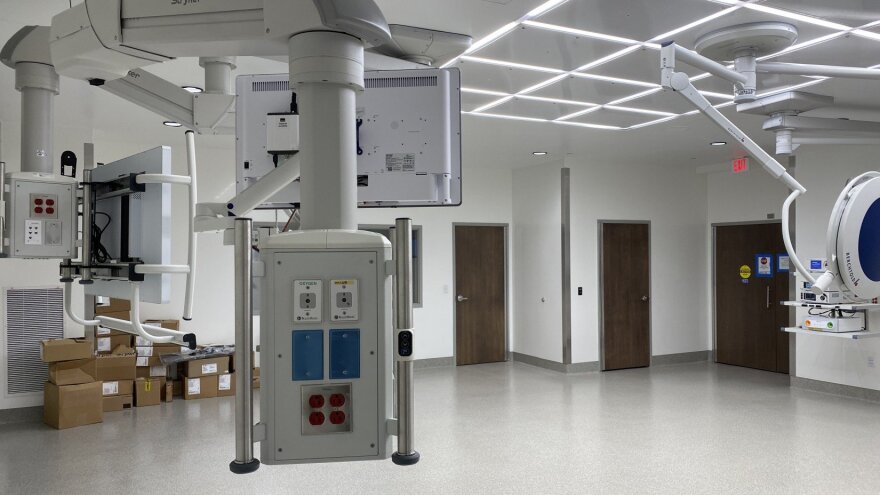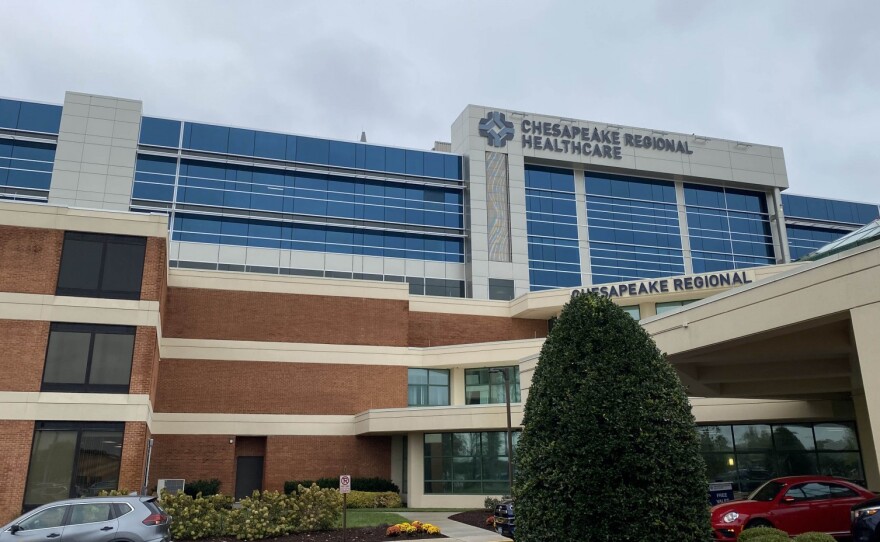Virginia officials say Chesapeake Regional Medical Center can start performing open heart surgeries, the conclusion to a yearslong fight for approval that included a legal battle that went to the state Supreme Court.
State Health Commissioner Dr. Colin Greene recently approved the hospital's application for a certificate of public need for the procedures. It’s a convoluted process Virginia uses to regulate health care operations.
"All the twists and turns, roadblocks, nuances, make today all the more gratifying,” Reese Jackson, president and CEO of Chesapeake Regional Healthcare, said Monday. "Now, with approval on hand, we can move forward, innovate and provide consumers with a healthy choice."
He said the hospital embarked on the process in part because of population growth in Chesapeake, particularly among seniors.

Chesapeake Regional first applied to launch an open heart surgery program in 2017. Staff with the Virginia Department of Health recommended approval as long as the hospital agreed to do a certain amount of charity care, according to court documents.
Sentara Healthcare soon petitioned to be involved in the decision. The hospital system disputed some of the medical numbers on which Chesapeake Regional’s application was based and argued that the project didn’t meet community need standards.
In 2018, then-Health Commissioner Dr. Norman Oliver agreed and rejected the heart surgery application, stating in part that it duplicated existing services in the region and did not improve geographic or financial access for residents.
Chesapeake Regional sued Sentara and appealed the state’s decision in court, where it made its way to the Virginia Supreme Court. Last spring, a justice sided with CRH, ruling that the state had erred in how it calculated public need.
That allowed the health system to re-apply last summer. Jackson told WHRO at the time that the Virginia Supreme Court's decision clarified what state officials should weigh in their deliberations.
Chesapeake Regional also worked with lawmakers to codify its ability to include North Carolina residents — who make up about 15% of its overall patient population — in the numbers.
In the meantime, Sentara agreed to drop its opposition to the heart program during a standoff over unrelated legislation at the 2019 General Assembly session, the Daily Press reported.
The certificate of public need system was created in 1973 because of a federal mandate that health care providers prove a community needs a facility before opening one. The mandate was repealed in 1986 but the statewide program persists, according to the Medical Society of Virginia.
Greene's approval stipulates that the hospital's open heart program will "inject beneficial competition in a highly concentrated" surgery market, according to Chesapeake Regional.
Asked Monday whether that means offering lower prices than elsewhere, Jackson said, "We already have the lowest prices."
"We think there's enough room for us,” he said, “and we intend to make the most of it.”
Dr. Tom Carter, medical director of cardiovascular surgeon services, said the system intends to use a "universal bed model," meaning patients can stay in one place while seeing a range of providers.
Carter also said offering surgery on-site will prevent patients from having to travel between providers: "We believe that for good quality heart surgery care, you need your cardiologist and your heart surgeon involved, and you can't do that in a different institution."
The hospital will immediately begin installing equipment and hiring surgeons and other staff. Construction is almost complete on a new hybrid operating room that doctors will use for the procedure.
Officials plan to start performing surgeries early next year. Jackson said they expect to handle about 150 surgeries in 2024, and increase to about 250 in the years following.
The heart program is one of several massive efforts the hospital’s undertaking for a total of about $150 million, including a new critical care tower that opened in October and increasing the size of postpartum rooms.


